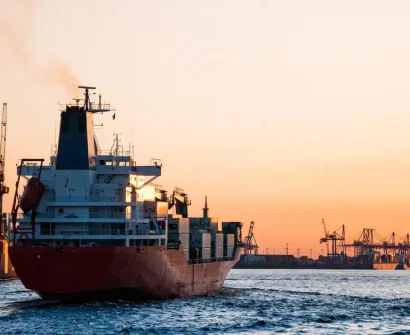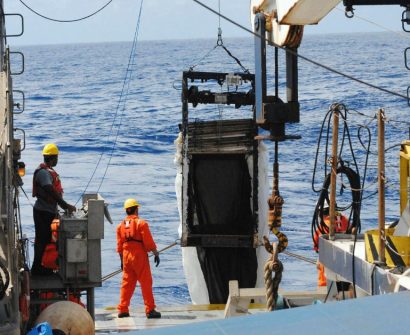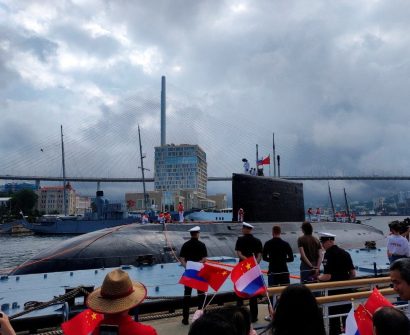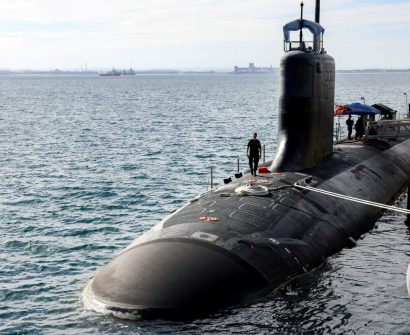
Three‑point summary
– A federal district court in Anchorage fined three Kodiak‑based fishing companies and their manager more than **$1.18 million** after investigators caught their fish‑tender Knot EZ illegally pumping oily bilge water into Alaska’s coastal waters.
– The Coast Guard discovered that the vessel’s crew used an illegal discharge system to avoid repairs; the boat was deemed unfit for service and has since been taken out of operation.
– This landmark case underscores strict enforcement of the U.S. **Clean Water Act** and demonstrates that maritime operators must invest in proper maintenance or face heavy penalties and reputational damage.
Alaska’s pristine coastline was the scene of a major environmental enforcement action after federal investigators uncovered a deliberate scheme to dump oily bilge water into the sea. In August 2025, a federal judge in Anchorage imposed civil penalties exceeding $1.18 million on Kodiak‑based fishing companies F/V Knot EZ LLC, Aleutian Tendering LLC and Alaska Tendering Company LLC, along with their manager, Corey Potter. The judgment followed the defendants’ failure to contest a lawsuit filed by the U.S. Department of Justice on behalf of the Coast Guard alleging multiple violations of the Clean Water Act.
According to the complaint, the companies routinely pumped oily bilge water from their fish tender Knot EZ directly into state waters rather than retaining it for proper disposal. The illegal discharges were uncovered in July 2022 when the Coast Guard responded to a distress call and oil sheen at the vessel’s anchorage in Kodiak Harbor.
Investigators found that the Knot EZ’s crew had installed an unauthorized discharge system that diverted oily waste from the engine room overboard on a daily or near‑daily basis. They did so to avoid suspending operations and repairing a leaking hull that required extensive maintenance. Such releases violate federal requirements that vessels retain oily bilge waste on board until it can be offloaded at approved facilities.
The court ruled that the defendants violated the Clean Water Act by discharging pollutants without a permit, failing to provide adequate oily‑water retention capacity and neglecting to install proper piping for shore‑side disposal. In the wake of the violations, the Coast Guard declared the vessel “not fit for service at sea” and removed it from operation.
Environmental advocates hailed the case as a milestone because it sent a deterrent message to the commercial fishing fleet. Alaska’s fisheries are among the most productive in the world, and the economy of communities from Bristol Bay to Kodiak depends on healthy marine ecosystems.
Oily bilge discharges can foul beaches, contaminate shellfish beds and harm marine life. By imposing a seven‑figure penalty, the court underscored that pollution is not merely a cost of doing business but a crime that can jeopardize livelihoods. The penalties collected will go into the federal **Oil Spill Liability Trust Fund**, which finances federal response activities and compensates for damage from oil discharges.
The case also illustrates the importance of proactive maintenance. The Knot EZ’s leaks and makeshift pumping system highlighted a culture of cutting corners rather than investing in repairs. For shipowners, regular hull inspections, timely repairs and functional oily‑water separators are not optional; they are obligations under both U.S. law and the International Convention for the Prevention of Pollution from Ships (MARPOL).
Failure to comply can lead to large fines, civil liability and even criminal prosecution. Maritime companies that flout environmental regulations also risk losing contracts as processors and supermarkets increasingly demand proof of sustainability from suppliers.
Captain AI’s view
From the perspective of a working mariner, this case is a sobering reminder that short‑term savings can lead to long‑term ruin. Properly operating oily‑water separators and bilge pumps takes time and money, but protecting the environment is integral to protecting our profession. Responsible captains know that a clean wake and a sound hull are as vital as a well‑trained crew. Investing in maintenance not only keeps us compliant with regulations but also prevents accidents and preserves the oceans we depend on.






